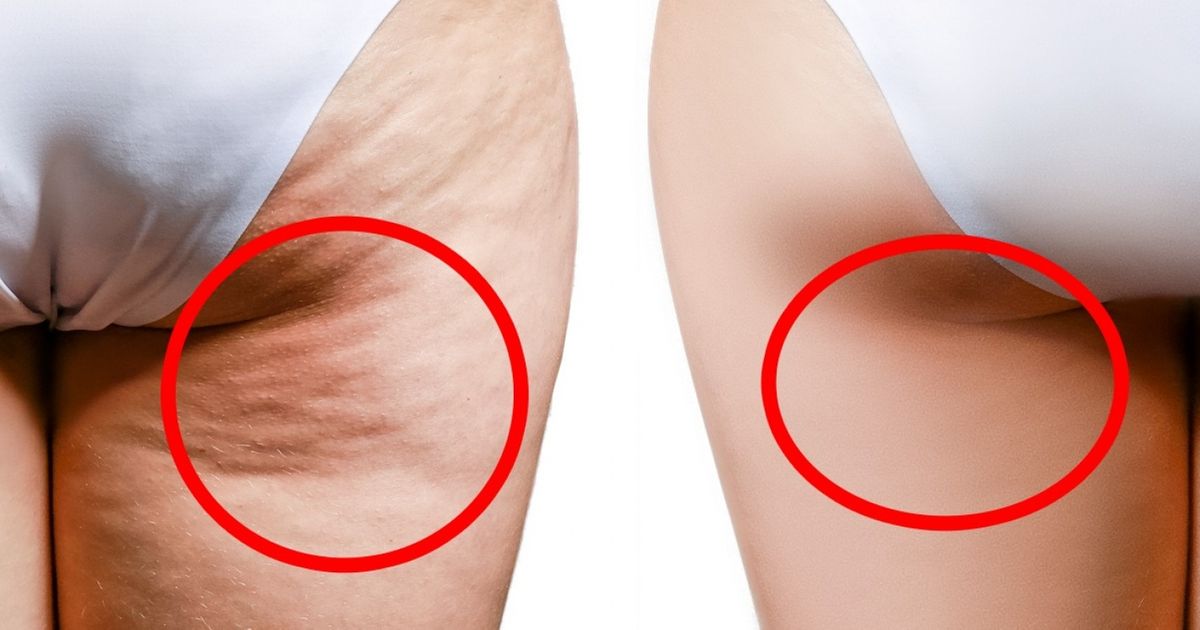Our daily routines often include unconscious habits that can subtly erode our appearance over time. In an era where beauty tips, anti-aging strategies, and healthy lifestyle choices dominate search trends, understanding these habits is key to maintaining youthful, glowing skin. From frequently touching your face while working at a computer to binge-watching shows late into the night, these seemingly trivial behaviors can have a cumulative negative effect on your skin, hair, and overall well-being.
In this comprehensive guide, we’ll explore 7 common habits that insensibly affect our appearance. By uncovering the hidden costs of these everyday behaviors and providing actionable tips, you can revamp your routine and embrace a more mindful, beauty-enhancing lifestyle. For further insights on skincare and anti-aging routines, reputable sources like Healthline and Mayo Clinic offer in-depth guidance. Let’s dive into these habits and discover how small changes can yield big results.
Everyday Habits That Ruin Your Looks
Touching Your Face and Chin While Sitting in Front of a Computer: The Hidden Skin Damage

It might seem harmless to rest your hand on your face or chin while working, but this habit can introduce bacteria, oils, and dirt directly to your skin. Constantly touching your face can lead to breakouts, skin irritation, and even premature aging. Dermatologists often warn that even slight friction from your fingers can disrupt the skin’s natural barrier, resulting in inflammation and irritation.
Key Points to Consider:
- Bacterial Transfer: Your hands are exposed to countless germs throughout the day. When you touch your face, these bacteria can clog pores, leading to acne and other skin blemishes.
- Skin Barrier Disruption: Frequent contact can compromise your skin’s protective layer, making it more susceptible to environmental stressors.
- Premature Aging: Over time, repetitive friction can accelerate the formation of fine lines and wrinkles.
To protect your skin, try to keep your hands away from your face, especially during long hours at the computer. Incorporating regular hand washing and using a gentle facial cleanser can further reduce the risk of breakouts. For more information on preventing acne and maintaining healthy skin, visit Healthline’s skincare advice.
Crossing Your Legs: How Posture and Circulation Impact Your Appearance
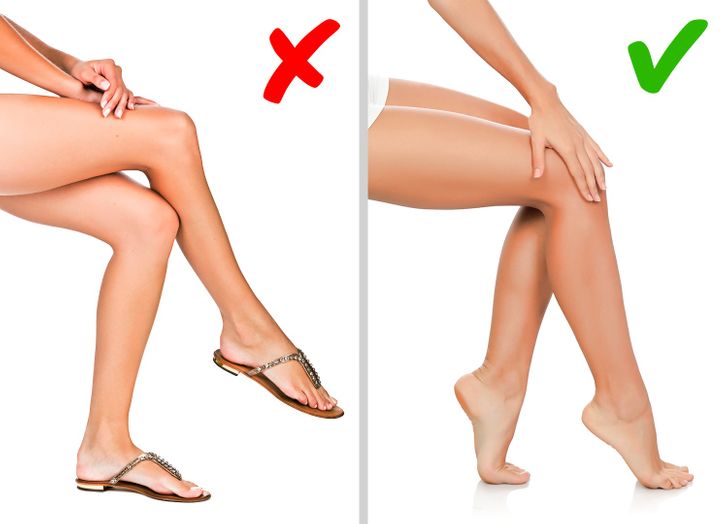
While crossing your legs might be a comfortable way to sit, it can subtly affect your overall posture and even your circulation. Poor posture not only contributes to back and neck pain but can also lead to a slouched appearance, making you look older and less confident. Over time, habitual leg crossing can misalign your hips and spine, resulting in long-term muscular imbalances.
The Impact on Appearance:
- Postural Imbalance: Consistently crossing your legs can lead to uneven pressure on your hips and lower back, affecting your overall body alignment.
- Circulation Issues: Restricted blood flow can cause temporary puffiness or discoloration in the legs, which may eventually contribute to a less vibrant appearance.
- Aging Effect: Poor posture is often associated with premature aging, as it reinforces a drooping, tired look.
Consider switching up your sitting habits by using an ergonomic chair, keeping both feet flat on the floor, and performing regular stretching exercises to strengthen your core. These small adjustments not only improve your appearance but also contribute to a healthier lifestyle. For expert advice on improving posture, check out Harvard Health’s posture improvement tips.
Brushing Your Hair Immediately After Showering: Rethink Your Haircare Routine
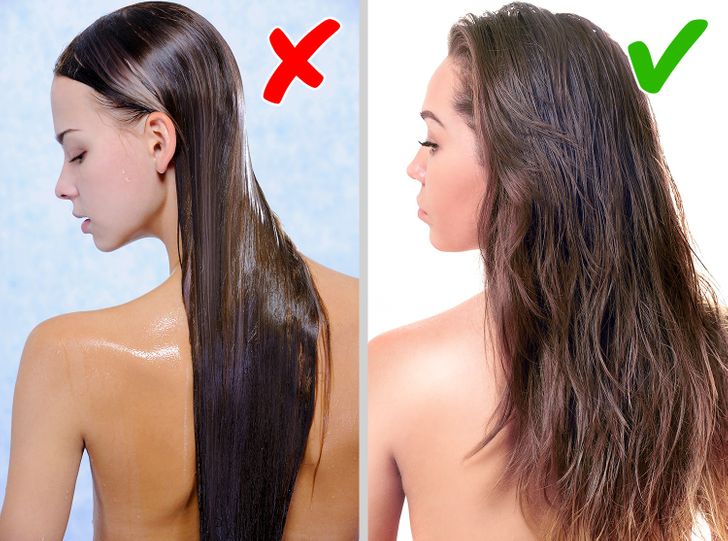
It’s tempting to comb through your locks right after a shower, but brushing your hair when it’s wet can cause significant damage. Wet hair is at its weakest state, and aggressive brushing can lead to breakage, split ends, and frizz. Adopting a gentler haircare routine is essential for maintaining smooth, healthy, and youthful hair.
Beauty Tips for Healthy Hair:
- Avoid Wet Brushing: Instead of brushing immediately, use a wide-tooth comb to gently detangle your hair while it’s damp. This minimizes damage and helps maintain your hair’s natural shine.
- Use a Microfiber Towel: Pat your hair dry with a microfiber towel rather than rubbing it vigorously. This reduces friction and minimizes hair breakage.
- Invest in Quality Products: Incorporate leave-in conditioners and detangling sprays designed to protect and nourish your hair.
By making these small adjustments, you not only improve the appearance of your hair but also contribute to long-term hair health. For more on haircare tips and routines, refer to Mayo Clinic’s hair care guidelines.
Binge-Watching Shows: How Prolonged Screen Time Affects Your Skin and Sleep
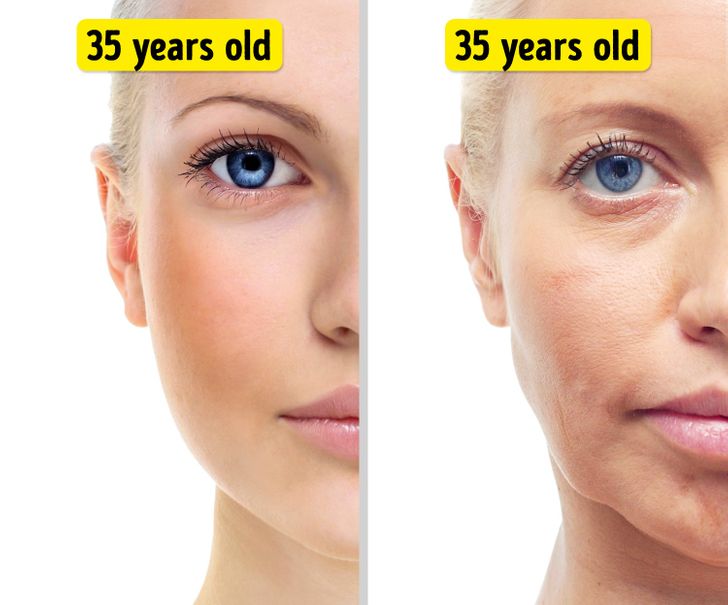
The era of streaming has given rise to binge-watching, a habit that can significantly disrupt your sleep patterns and overall health. Extended screen time before bed not only leads to digital eye strain but also interferes with your body’s natural sleep cycle. Poor sleep hygiene is a major contributor to dull, tired-looking skin and can accelerate the aging process.
Consequences of Binge-Watching:
- Sleep Deprivation: Insufficient sleep affects the body’s ability to repair and regenerate skin cells, leading to dark circles, puffiness, and a lackluster complexion.
- Digital Eye Strain: Prolonged exposure to screens can cause eye fatigue, dryness, and headaches, all of which indirectly contribute to an overall tired appearance.
- Stress and Hormonal Imbalance: The stress of staying up late and disrupted sleep patterns can lead to increased cortisol levels, which are linked to skin inflammation and breakouts.
To mitigate these effects, consider setting a strict bedtime routine and limiting screen time at least an hour before sleep. Incorporating a digital detox and relaxing activities such as reading or meditation can improve both your sleep quality and skin health. For further insights on the effects of screen time, visit WebMD’s article on digital eye strain.
Using Your Smartphone Before Going to Sleep: The Need for a Digital Detox
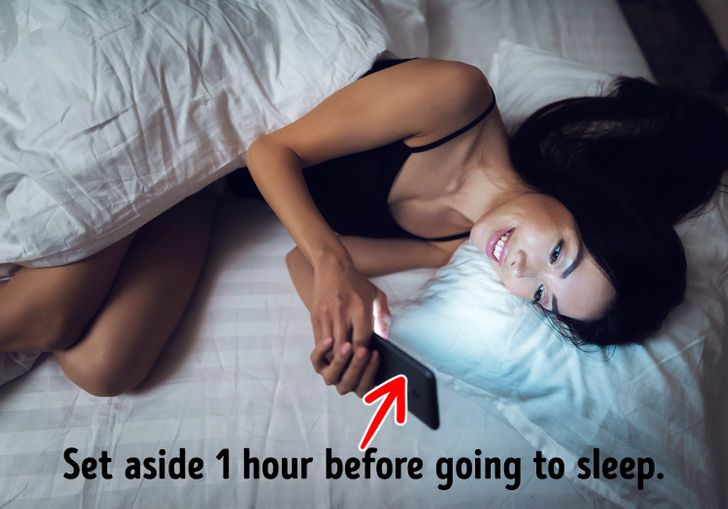
The habit of using your smartphone right before bed has become all too common. The blue light emitted by screens disrupts your circadian rhythm, suppressing melatonin production and interfering with your sleep cycle. Poor sleep quality not only leaves you feeling tired but can also contribute to premature aging and a dull complexion.
Key Strategies to Combat Smartphone Overuse:
- Establish a Digital Curfew: Try to put your phone away at least 30–60 minutes before bed to allow your brain to unwind.
- Use Blue Light Filters: Many devices now come with blue light filters or “night mode” settings that reduce the impact of blue light on your sleep.
- Create a Relaxing Environment: Consider reading a book or listening to calming music instead of scrolling through social media.
Embracing a digital detox can significantly enhance your sleep quality, leading to improved skin regeneration and a refreshed appearance in the morning. For more tips on reducing smartphone dependency, explore Harvard Health’s advice on digital detox.
Neglecting Full-Body Sunscreen Application: Beyond Just Your Face
Many people make the mistake of applying sunscreen only on their face, neglecting other exposed areas such as the neck, chest, and arms. This oversight can lead to uneven skin aging, sunspots, and an increased risk of skin cancer. Protecting your skin from harmful UV rays is a crucial step in any anti-aging and skincare routine.
The Importance of Comprehensive Sunscreen Use:
- UV Protection: Sunscreen helps prevent the formation of wrinkles, hyperpigmentation, and skin cancer by blocking harmful UV rays.
- Even Skin Tone: Applying sunscreen on all exposed areas ensures a uniform skin tone and reduces the risk of premature aging.
- Dermatologist Recommended: Experts consistently advise full-body sunscreen use as part of an effective skincare routine.
Make it a habit to apply a broad-spectrum sunscreen with at least SPF 30 on all exposed skin, even on cloudy days. For a deeper understanding of proper sunscreen use, visit American Academy of Dermatology’s guidelines.
Over-Correcting Your Eyebrows and Rushing Makeup Application: The Hidden Costs of a Hasty Beauty Routine
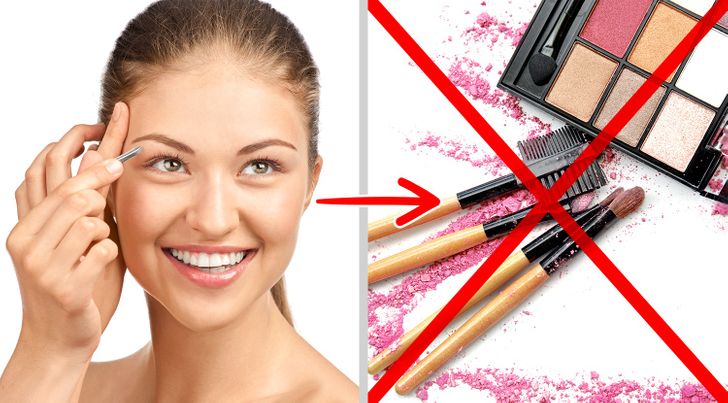
Your eyebrows and makeup can define your facial features, but over-correcting or rushing through your beauty routine can have unintended consequences. Excessive manipulation of delicate areas can lead to skin irritation, broken hair follicles, and an unnatural look that detracts from your overall appearance.
Beauty Routine Best Practices:
- Take Your Time: Allow your skin to settle before applying makeup. This ensures a smoother application and reduces the risk of irritation.
- Gentle Techniques: Use light, controlled movements when correcting your eyebrows. Over-plucking or aggressive makeup application can cause long-term damage to the skin and hair.
- Quality Tools and Products: Invest in dermatologist-recommended makeup products and tools that are designed for sensitive skin. These products often contain ingredients that protect and nourish your skin while providing the desired cosmetic effect.
By refining your beauty routine, you can achieve a more natural, polished look while protecting your skin from unnecessary stress. For expert tips on makeup application and eyebrow grooming, check out Allure’s beauty tips.
Conclusion: Embrace Mindful Habits for a Radiant Appearance
Our appearance is the result of numerous small choices and habits that accumulate over time. From the way we interact with our skin while working at our computers to our bedtime routines and makeup practices, every action plays a role in shaping our outward look. By recognizing and addressing these 7 common habits that insensibly affect our appearance, you can take proactive steps toward a healthier, more youthful version of yourself.
Incorporating mindful practices such as avoiding face-touching, maintaining good posture, handling your hair gently, reducing screen time before bed, and applying full-body sunscreen can lead to noticeable improvements in your skin, hair, and overall well-being. Remember, beauty is not just skin deep—it’s a reflection of how we care for ourselves every day.
Adopting these expert-backed tips and integrating them into your daily routine will not only enhance your appearance but also contribute to a better quality of life. For additional advice on anti-aging, skincare routines, and overall wellness, explore trusted sources like Healthline, Mayo Clinic, and Harvard Health.
Start making these simple yet powerful changes today, and unlock a more radiant, confident you. Your appearance—and your health—will thank you for it.
